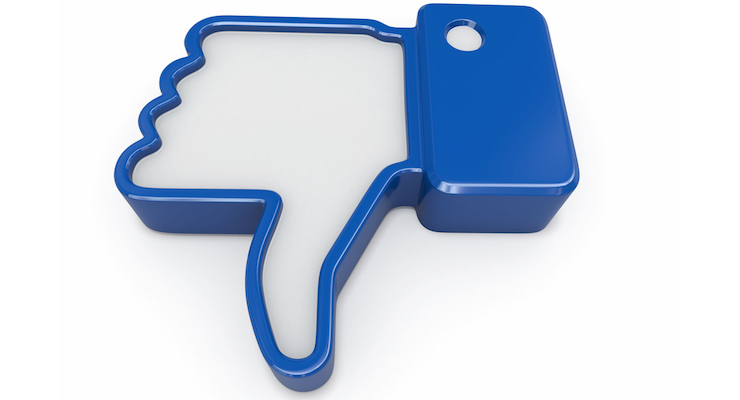In early November, the Denver Guardian published a post with the headline “FBI Agent Suspected in Hillary Email Leaks Found Dead in Apparent Murder-Suicide.” The status update promoting the piece on Facebook started with the line: “You can’t make this stuff up.”
Well, actually you can make this stuff up.
The story was completely false.
Because, for starters, there’s no such thing as the Denver Guardian.
It didn’t matter though. That article was shared 293,000 times on social media, according to BuzzSumo data.
You see, it turns out this year’s election created a “digital gold rush” in fake news. In August, New York Times Magazine published an article detailing how “fakebait” sites were bringing in tens of thousands of dollars in ad revenue through Facebook. (BuzzFeed also wrote a good followup, Hyperpartisan Facebook Pages Are Publishing False And Misleading Information At An Alarming Rate.)
Facebook Audience Network Bans Fake News Publishers
Now Facebook has updated its advertising guidelines to exclude these types of fake news sites from generating revenue from the Facebook Audience Network.
“We have updated the policy to explicitly clarify that this applies to fake news,” a Facebook spokesperson told WSJ. “We vigorously enforce our policies and take swift action against sites and apps that are found to be in violation. Our team will continue to closely vet all prospective publishers and monitor existing ones to ensure compliance.”
The revised policy promises to ban publishers for showing:
“…content that is illegal, misleading or deceptive, or that promotes regulated goods, pornography, adult products or services, casual dating, violence, weapon sales, online real money games of chance or skill, work-at-home schemes, spy cameras, fake news or anything that falls within any other categories that are prohibited by the Facebook Community Standards, with the exception of apps or sites that display news editorials featuring the above content or if you have our prior written permission.”
This Won’t Solve Facebook’s Algorithm Problem
This change, however, won’t prevent fake news from being shared in the News Feed. That’s a bigger problem – and one CEO Mark Zuckerberg seemed to brush off a couple days after the election.
“Personally I think the idea that fake news on Facebook, which is a very small amount of the content, influenced the election in any way – I think is a pretty crazy idea,” Zuckerberg said. “Voters make decisions based on their lived experience.”
While it’s impossible to blame or thank Facebook entirely (depending on your point of view of the election outcome), there is a major flaw with Facebook that needs to be addressed: its algorithms reward engagement.
People engage with content they like. Facebook shows them more of that type of content in their news feed. (The opposite is true – if people engage with content, Facebook shows less of that type of content.)
Rewarding engagement in this way results in people living in so-called filter bubbles, which reinforce their own beliefs and preferences, rather than exposing people to stories that challenge their thinking and worldview.
Zuckerberg, in a Facebook post, said only about 1 percent of the stuff posted to Facebook is fake news and hoaxes. However, he also acknowledged that there is more work that can be done in this area.
Image Credit: Depositphotos





